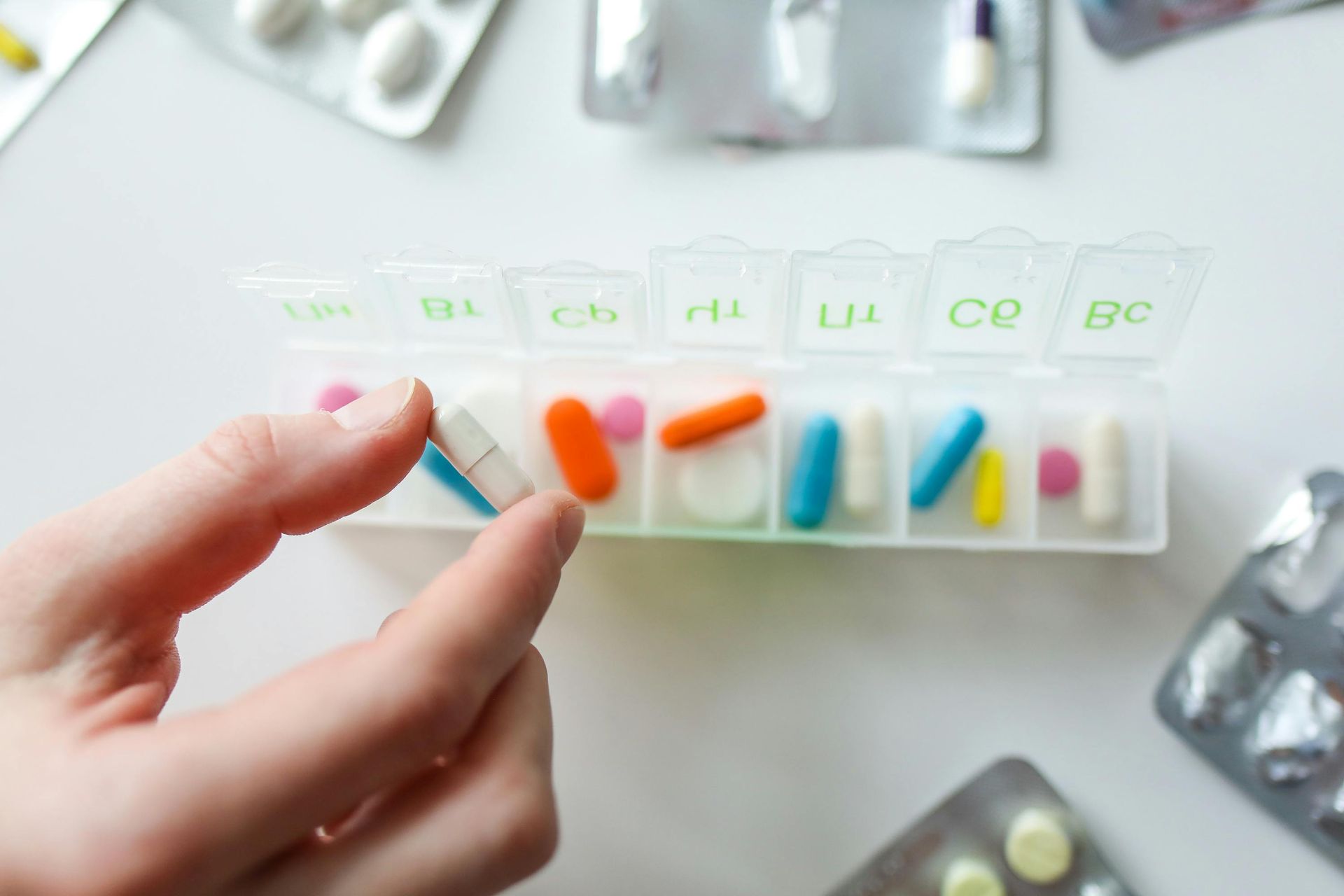Ketamine vs Traditional Antidepressants: A Comprehensive Guide

The Albany Clinic • December 17, 2023
Navigating the landscape of mental health treatment, especially for conditions like depression and PTSD, often involves exploring various therapeutic options. For many years, traditional antidepressants have been a primary choice. However, recent advancements have introduced a new option: Ketamine. This guide delves into the nuances of Ketamine, particularly in its IV form, as compared to traditional antidepressants, offering insights for those still seeking effective treatment.
The Albany Clinic provides a balanced perspective, shedding light on the effectiveness, potential benefits, and considerations of each treatment modality. This comparison is important for patients and healthcare providers alike as they make informed decisions about mental health care. Understanding these options is key in the journey toward healing and stability for those affected by these challenging mental health conditions.
Understanding Their Mechanisms
Traditional Antidepressants: These medications have been a cornerstone in managing depression. They function as reuptake inhibitors, a process involving neurotransmitters, the brain's chemical messengers. After these neurotransmitters have facilitated communication between nerve cells, they are typically reabsorbed. Antidepressants inhibit this reabsorption, allowing neurotransmitters to remain active longer, thereby enhancing communication and emotional regulation. This mechanism aims to create a more balanced chemical environment in the brain. By keeping more neurotransmitters in the space between the nerve cells, they enhance communication and improve mood and emotion regulation. It's a process that requires patience, as the full benefits of these medications often take weeks to manifest.
Ketamine:
IV Ketamine represents a different approach. It influences the brain's glutamate system, which is vital for mood regulation. Ketamine blocks specific receptors, which leads to an increase in glutamate activity. This triggers the formation of new neural connections, fostering the development of healthier brain pathways. It's akin to supporting the brain in building new and more effective communication routes. Ketamine also potentially repairs damage inflicted by stress hormones on the brain's proteins.
Speed and Duration of Effects
One of the standout features of Ketamine when compared to traditional antidepressants is its rapid onset of action. A 2022 study published in the National Library of Medicine demonstrated that a single subanesthetic-dose IV ketamine infusion can rapidly improve depressive symptoms within just one day, with antidepressant effects lasting from three days up to seven days. This swift response is particularly vital for individuals with severe depression or suicidal ideation, where time is often a critical factor. In such scenarios, the ability of Ketamine to provide almost immediate relief can be a significant advantage, offering a much-needed reprieve in acute phases of depression.
Traditional antidepressants, in contrast, can often take several weeks or even months to exhibit their full therapeutic effect. This slower onset of action could pose a limitation for patients requiring immediate relief. The gradual improvement seen with these antidepressants may contribute to more sustained long-term benefits, but they may not be as suitable for patients in need of urgent care. This difference in the speed of response between Ketamine and traditional antidepressants underscores the importance of tailoring treatment to the individual needs of each patient, particularly in emergency mental health situations.
Efficacy in Treatment-Resistant Cases
The role of Ketamine in treatment-resistant depression (TRD) is particularly noteworthy. TRD, defined as depression that does not respond adequately to at least two different antidepressants, presents a significant challenge in mental health care. In these instances, Ketamine has emerged as a beacon of hope. The S-enantiomer of ketamine, known as esketamine, has been studied extensively for its potent antagonistic effects at the NMDA receptor, a key component in its antidepressant properties. This has led to esketamine's exploration as a viable treatment option for TRD, providing relief for those who have found traditional antidepressants ineffective.
Numerous studies, including those cited on platforms like the National Center for Biotechnology Information (NCBI), have highlighted the rapid and robust antidepressant effects of ketamine in individuals with TRD. These studies indicate that ketamine can produce significant improvement in depressive symptoms, often within 24 hours of administration, a remarkable feat considering the typically gradual onset of traditional antidepressants. This rapid action can be particularly beneficial in acute cases, offering a much-needed alternative for individuals struggling with severe symptoms. Additionally, ongoing research suggests that repeated treatments with ketamine might lead to sustained improvements, potentially transforming the treatment landscape for TRD.
Comparing Side Effects and Safety Profiles
While both Ketamine and traditional antidepressants have their side effect profiles, they differ significantly in nature and duration. Ketamine's side effects are generally transient and occur during or immediately after infusion. These can include changes in blood pressure, dissociation, and nausea but typically resolve quickly without long-term consequences. Traditional antidepressants, on the other hand, can have more persistent side effects like weight gain, sexual dysfunction, and emotional blunting. These side effects can sometimes persist for the duration of the treatment and may influence a patient's willingness to continue the therapy.
A Balanced Perspective
The choice between Ketamine and traditional antidepressants isn't straightforward. It involves considering various factors like the severity of symptoms, previous treatment history, and personal health profile. While Ketamine offers a rapid and effective alternative, especially for treatment-resistant cases, it's essential to have a thorough discussion with healthcare professionals to determine the most suitable treatment plan. Beyond medication, therapy plays an effective role in treating mental health disorders. Integrating therapies like cognitive-behavioral therapy (CBT) with medication can provide a more holistic approach to treatment. This combination can address the underlying causes of mental health issues while managing symptoms.
Next Steps
Exploring all treatment options is key for those struggling with depression or PTSD. Ketamine offers a swift alternative for some, presenting a potential solution for those who have not found relief with other methods. On the other hand, traditional antidepressants provide a well-established route for others, offering a time-tested approach with a substantial track record. It's essential to understand that each individual's journey is unique, and what works for one person may not be as effective for another. Consulting with a mental health professional is an important first step in this deeply personal process. Their expertise can help tailor a treatment plan that aligns with your specific needs and circumstances.
The Albany Clinic in Carbondale Illinois invites you to
reach out for expert guidance and support on your journey towards healing and stability, ensuring that you are not alone in this process and that there is a team ready to assist you in navigating these complex decisions.
35 Albany Rd. Suite A Carbondale, IL 62903
Phone: (888) 804-4330






